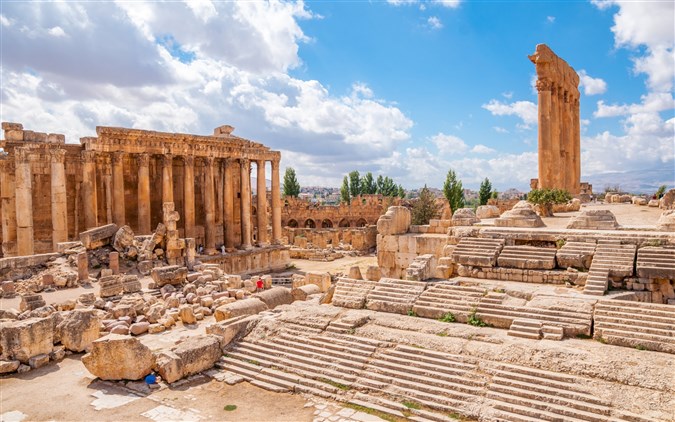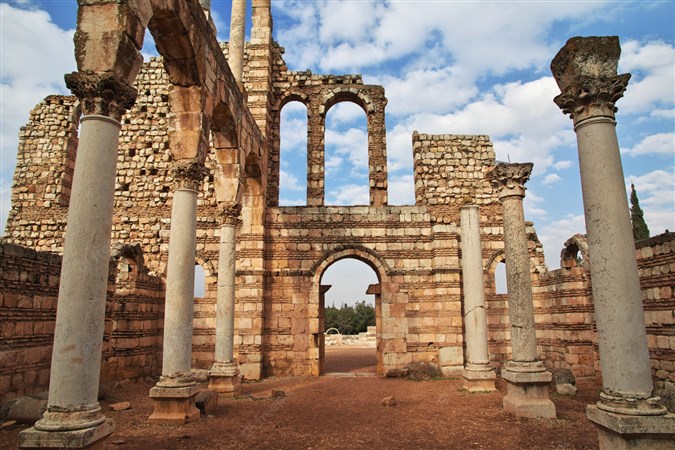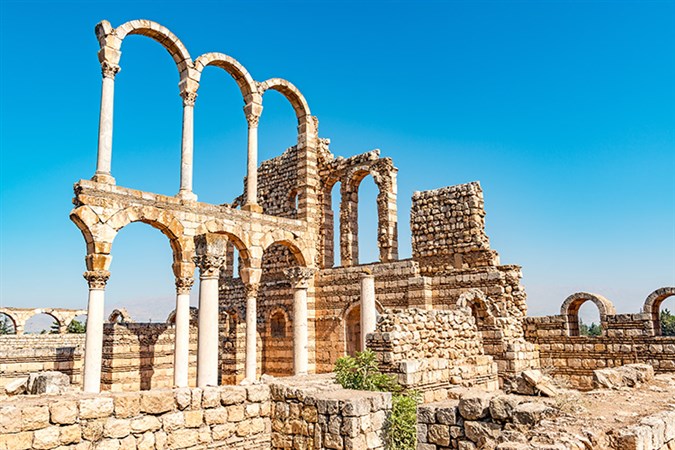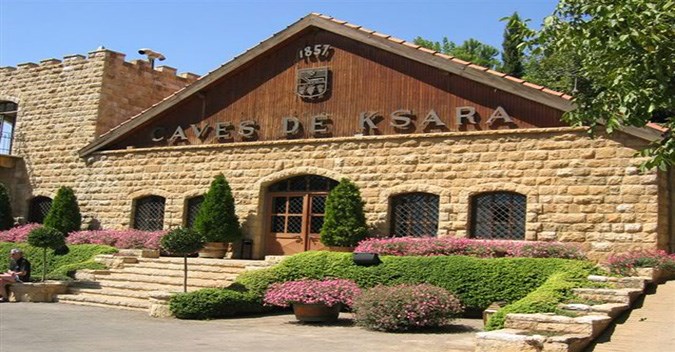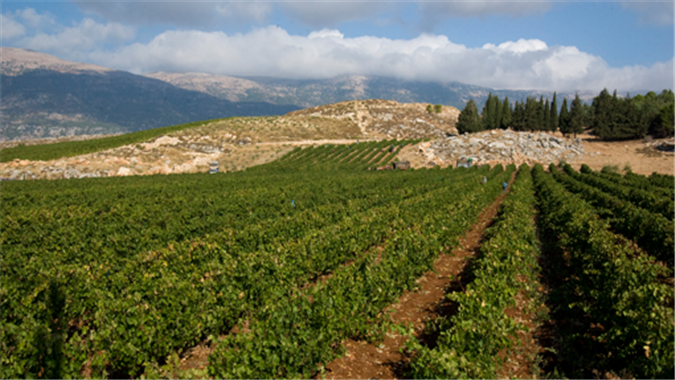-
-
LATEST NEWS CLICK HERE


Baalbeck, Anjar & Ksara Winery (with Lunch)
From 01 April till 31 October 2025Highlights- Heliopolis, the roman temples of Baalbeck, makes up the largest and best preserved corpus of roman architecture left around. The acropolis occupies the top of an artificial hill built up of different layers of habitation.
- Discover Anjar's city that was built in the early 8th century A.D. Inside the city’s strong fortifications are the remains of streets, three palaces, souks, two hammams and a Mosque.
- Visit Ksara, the refuge of the well known Ksara wine where thousands of the old wine bottles are preserved. A tasting of the best wines is done during the visits.
- Mon
- Tue
- Wed
- Thu
- Fri
- Sat
- Sun
- STARTING PRICE $95
- Info The tour starts with the visit Baalbeck, followed by Anjar Omayyads' Town. Lunch and ends with Ksara (Wine tasting and visit of the caves).
-
Languages


-
Includes
Transportation in a deluxe vehicle, pickup-drop off from/to Beirut, professional guide, lunch at first class Lebanese restaurant touristic menu with one soft drink or one small glass of Arak (except on Wednesdays & Saturdays excluding lunch), entrance fees and VAT.
-
General Conditions
-
- Rates include transportation in deluxe motorcoaches or vans, services of professional guides, lunch, entrance fees and VAT.
- Lunches are served in first class selected Lebanese restaurants with one small glass of arak or one soft drink.
- Children between 4 and 12 years get $15 discount.
- Payment in cash.
- All prices and programs are subject to change without prior notice.
FREE PICK-UPS:
Pick ups are provided free of charge from all hotels in Beirut for bookings received up to 20:00 of the day preceding the tour. Guests are requested to be at the reception desk of their hotel starting 07:45. Drivers may pass any time between 07:45 and 08:00. They are instructed not to wait. Guests missing their pick-up will have to come to our office at their own expense.
Important Notes:
The company is not responsible for forgotten items on the daily tours. Lost and found items will be kept at Nakhal offices for collection for a maximum of 30 days.
-
Baalbeck, Anjar & Ksara
-
BaalbeckHeliopolis: the roman temples of Baalbeck, located in the Bekaa valley 85 kilometers away from Beirut. It makes up the largest and best preserved corpus of roman architecture left around. The acropolis occupies the top of an artificial hill built up of different layers of habitation. Its temples, dedicated to Jupiter, Bacchus and Venus, were constructed between the first and the third centuries A.D.In the “Jupiter temple”, six of the 54 giant columns that originally surrounded the sanctuary, survived till today. The temple has an impressive podium and a vast rectangular courtyard where sacrifices were carried out. The sanctuary is reached through a propylaea (monumental entrance) and hexagonal forecourt.The town of Baalbeck has major remains from Islamic times including the grand Mosque, built by the Ommayadds with material borrowed from ancient monuments, and another mosque built in Mamluke times near the spring of Ras El–Ain.AnjarAnjar is located in the Bekaa valley, 58 km away from Beirut. It was built by the Omayyad caliph al- Walid Ibn Abdel Malek in the early 8th century A.D. Inside the city’s strong fortifications are the remains of streets, three palaces, souks, two hammams and a Mosque.Located on the old route linking the Bekaa with Damascus, Anjar was built in the neighborhood of an ancient stronghold called Gerrah, which location is still problematic.Today the name of Gerrah is retained in the word 'Anjar' which means 'source of Gerrah' (Ain Gerrah).KsaraBuilt during the Roman period then covered by sand for centuries , the Ksara caves were found by mistakes in 1898 by the Jesuites who were looking for a wolf that was eating their chicken every night and was using the caves a refuge.It is now the refuge of the well known Ksara wine where thousands of the old wine bottles are preserved. A tasting of the best wines is done during the visits.
CloseSend A RequestBook Your Tour
